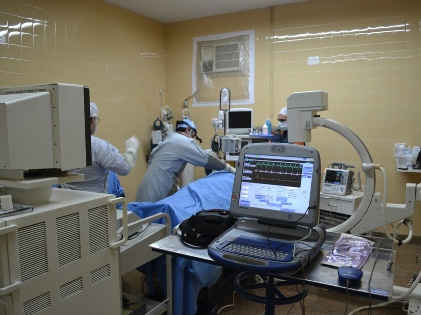
This Is How Hospital Mergers Are Affecting American Healthcare Industry Consumers

You deserve premium quality healthcare that doesn’t burn a hole in your pocket. However, for most American families, healthcare has become too expensive. A major factor behind the hike in healthcare costs is the increasing consolidation between hospital and hospital systems. According to the Director of Public Affairs for the Federal Trade Commission, too many mergers between hospitals caused a huge price increase. And this results in diminished care for those who need urgent treatment. The sad part is that Americans have to face this almost every day, paying exorbitant prices for medical services. In this blog, we discuss how hospital mergers affect American healthcare industry consumers.
Lower Competition Resulting in High Healthcare Costs
 According to a recent study, hospital concentration has led to a 5% higher average yearly Marketplace health insurance premiums than those areas that have a lower concentration. Another study on hospital prices for individuals under employer health plans also had shocking revelations. It found that hospitals without competition in 15 miles charge 12% higher prices than areas with four or more hospitals.
According to a recent study, hospital concentration has led to a 5% higher average yearly Marketplace health insurance premiums than those areas that have a lower concentration. Another study on hospital prices for individuals under employer health plans also had shocking revelations. It found that hospitals without competition in 15 miles charge 12% higher prices than areas with four or more hospitals.
Considering the average amount of the premium that Americans pay for treatment at the hospitals, that is 42%. And an additional 12% surcharge owing to non-competition leads to an average hike of more than $1000. For those who have employer-sponsored health insurance, the annual increase is $370.
Inferior Quality of Healthcare
 Some believe that hospital consolidation would improve healthcare and be beneficial to consumers. However, according to a 2009-2013 study on hospital acquisitions and merges, this is far away from the truth. A merger or acquisition is usually a result of poor patient experience and a lack of significant changes in mortality rates or readmission in the hospital.
Some believe that hospital consolidation would improve healthcare and be beneficial to consumers. However, according to a 2009-2013 study on hospital acquisitions and merges, this is far away from the truth. A merger or acquisition is usually a result of poor patient experience and a lack of significant changes in mortality rates or readmission in the hospital.
Hospital market concentration differs from an insurance market concentration. A study reveals that a patient experiences an inferior quality of healthcare due to the former. A hospital merger in Evanston faced legal action. The economists from the Federal Trade Commission wanted to find out whether this merger would lead to a better clinical quality.
Based on comparisons between various clinical outcomes, there existed little or no evidence that could improve healthcare quality. Simultaneously, the Administrative Law Judge too came to the same conclusion. So, going by the evidence from numerous studies, we can say without a doubt that hospital mergers and acquisitions do not result in better quality healthcare. However, it might impact the quality of patient care negatively.
Hospital Consolidation is On the Rise
 Hospital consolidation is not a recent trend. It continued even when the world was reeling under the impact of COVID-19. This consolidation has strengthened the anti-competitive power and the practices that the large hospital chains indulge in. Bad situations have worsened with time due to this. Before the COVID-19 pandemic, a 2020 MedPAC report found that around 90% of the hospital markets are moving toward concentration according to FTC or Federal Trade Commission standards.
Hospital consolidation is not a recent trend. It continued even when the world was reeling under the impact of COVID-19. This consolidation has strengthened the anti-competitive power and the practices that the large hospital chains indulge in. Bad situations have worsened with time due to this. Before the COVID-19 pandemic, a 2020 MedPAC report found that around 90% of the hospital markets are moving toward concentration according to FTC or Federal Trade Commission standards.
Besides that, the study also found another trend. A particular hospital system occupied more than half of the market share of discharges. Consumers have no choices, which is worse than the concentrated hospital markets. Another study from 2007 to 2017 suggests that 19% of the hospital markets covering over 11 million Americans belong to a single hospital system. As a result, hospitals with higher concentrations had a poorer supply of physicians than areas with lower concentrations.
Looking Ahead
In the times to come, the current trend will probably deteriorate without any enforcement from the Federal Government. There is no authority right now that would control the hospital consolidations. Therefore, large hospitals can easily use their anti-competition behavior at the expense of the consumers who need quality healthcare at affordable prices.
Increased competition between hospitals would keep the rising healthcare costs under control. And this would help Americans choose a proper health insurance plan for themselves. Rising healthcare costs have been a major headache for average Americans for quite a few years now. Antitrust lawsuits by the FTC are not enough for regulating healthcare costs. It requires amendments to the laws of the land. With the increasing focus on healthcare and the need for better access, we can hope that newer regulations will be in place to reduce hospital concentration. Do you think that hospital merges will impact your healthcare and insurance? Do share your thoughts in the comments section!
More in Anti-Aging
-
`
Jennifer Aniston’s Timeless Tips for Health and Youthfulness
Iconic Hollywood actress Jennifer Aniston has long been admired for her acting prowess and seemingly ageless beauty and vitality. Now in...
November 22, 2023 -
`
Unleash Your Entrepreneurial Drive: 5 Strategies for Self-Motivation
5. Have an Undying Passion Passion is the driving force behind the world’s most successful entrepreneurs. Self-motivation becomes second nature when...
November 19, 2023 -
`
How to Go Vegan – The Right Way!
The vegan lifestyle has seen a significant surge in popularity lately, and rightly so. Embracing veganism not only fosters personal health...
November 12, 2023 -
`
7 Eye-Opening Reasons to Drink More Water
Water is frequently hailed as the quintessential elixir for life, and rightfully so. Constituting approximately 60% of our total body weight,...
November 1, 2023 -
`
Drake’s Workout Regimen: How the Canadian Rapper Stays Fit
The lights dim, the stage is set, and the crowd’s anticipation is palpable. When the beat drops, there is one Canadian...
October 24, 2023 -
`
Why Six-Figure Family Holidays Are Becoming the New Normal
In the panoramic landscape of the modern travel scene, a particularly glittering trend is emerging, akin to finding a diamond the...
October 21, 2023 -
`
Foods With High Water Content
Water is the elixir of life, and staying adequately hydrated is crucial for maintaining our health and well-being. While sipping on...
October 15, 2023 -
`
The Impact of Wearable Technologies in Health Research
In recent years, wearable technologies have emerged as a powerful tool in health research, revolutionizing how we collect and analyze data...
October 3, 2023 -
`
How Celebrities Stay Fit? Secrets of Chris Pratt, Jennifer Lopez & More
The glitz and glamor of Hollywood may make it seem impossible for celebrities to maintain an enviable physique. But it is...
September 29, 2023















You must be logged in to post a comment Login